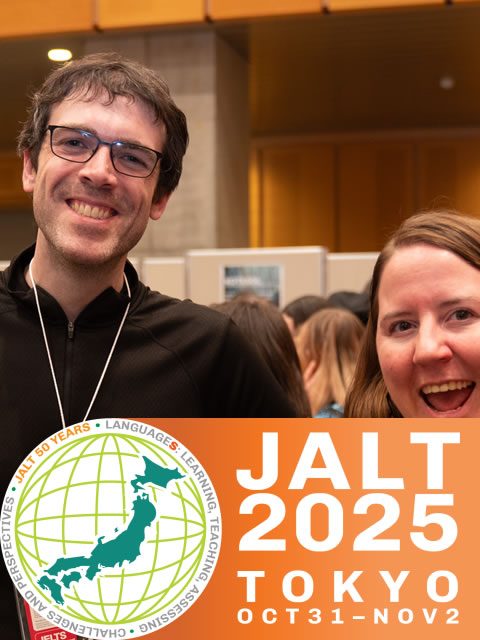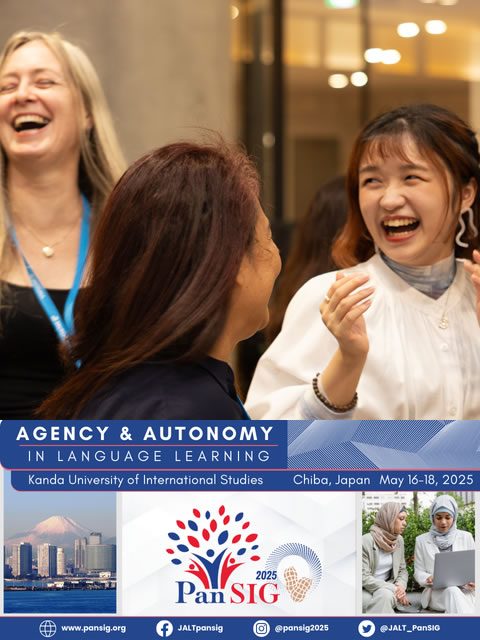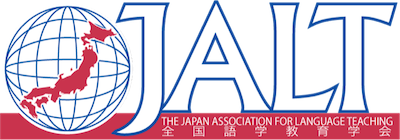Your cart is currently empty!
Featured Speakers
•
Special Pre-conference Issue of The Language Teacher
A non-password-protected excerpt of our publication, The Language Teacher, is available for download. This PDF includes articles from and interviews with our Plenary and Featured Speakers as a preview of their presentations.
Andrew Boon
Exploring worlds outside: Students as researchers
Sponsored by National Geographic Learning | Cengage Learning
Project work can be a powerful means of empowering students to take their learning beyond the borders of the classroom, to examine the world outside, to seek answers, and suggest change. This workshop will examine the process of engaging students in semester-long projects from equipping them with the necessary research tools to having them deliver the end-product via various media in the final class. It will also describe students’ reactions to the overall learning experience.
Andrew Boon is an associate professor in the faculty of humanities at Toyo Gakuen University, Tokyo. He has been teaching in Japan for over 16 years and is an Aston University PhD student. He has been an active member of JALT since 2004, has presented at numerous conferences, and has published several articles on teacher development, motivation, and methodology. He is also co-author of Inspire; a 3-level listening and speaking coursebook (Cengage Learning, 2013-14).
Miles Craven
Skills and Strategies
Sponsored by the JALT Materials Writers SIG
It’s not what you do, it’s the way that you do it! For students to learn successfully, we need to develop their competence across a range of key skills and strategies. This talk will demonstrate practical examples of how we can best achieve this in the classroom.
Miles Craven has worked in English language education since 1988, teaching in schools, colleges and universities around the world. He has a wide range of experience as a teacher, teacher-trainer, examiner, course designer, and textbook writer. He is the author or co-author of over thirty textbooks, including English Grammar in Use Extra, Cambridge English Skills, Q, Reading Keys, Breakthrough Plus and Pass the TOEIC Test. He also acts as Advisor for Executive Education programs at The Møller Centre for Continuing Education Ltd., Churchill College, University of Cambridge.
Lesley Ito
Use graded readers in conversation class and more
Sponsored by Atama-ii Books
A graded reader library is a valuable resource which can extend beyond simply extensive reading. These engaging leveled stories can also be used effectively in other contexts, from guiding and supporting eikaiwa-style conversation lessons, to structuring group discussions, to enriching writing or research tasks. This interactive workshop will highlight a variety of practical, effective, and simple solutions to fit all teaching contexts, from language school to university, and from children to adults.
Lesley Ito is a well-known teacher, teacher trainer, school owner, and ELT materials writer based in Nagoya. She has taught in Japan for twenty years, and has presented professionally at teaching conferences throughout the country. Her writing credits include Teacher’s Guides for the We Can! series (McGraw-Hill), workbooks for the Our World and Welcome to Our World series (Cengage), Fifty Ways to Teach Young Learners (Wayzgoose Press), and on-line materials to support the Choose Your Own Adventure Series (McGraw-Hill). Most recently, she has authored Tornado Alley and Backstage Pass (2014, Atama-ii Books).
Sonthida Keyuravong
Technology and communication across borders
Balsamo Asian Scholar
In the 21st century, communication has gone beyond face-to-face to involve Computer-mediated Communication (CMC) skills, one of the required skills for students to function effectively in the digital world. Students with effective communication skills stand a better chance of attaining their life’s goal after graduation. In their everyday life, students communicate by posting on social media tools, such as Facebook, to stay connected with friends. Teachers can help them make connections between their recreational writing and the kinds of writing skills they need beyond the classroom in the future. As teachers in the digital world, we need to be aware of the world students live in as we design learning experiences to cultivate effective communication skills. This talk will discuss the diverse variety of Web 2.0 tools and platforms that teachers can use to develop effective communication skills as well as netiquettes and intercultural understanding. The emphasis will be placed on real world tasks to increase students’ motivation.
Sonthida Keyuravong is a senior lecturer and teacher trainer at Department of English, King Mongkut’s University of Technology Thonburi. Her interests lie in technology in language learning and teaching, independent learning, and materials development. She coordinates a US-based network, iEARN Thailand, for schools across the globe to collaborate in online projects. She coordinated ELTeCS-EastAsia, a British Council’s English language teacher network from 2001-2013. In 1992-1993 she was the President of English Language Teacher Association, Thailand TESOL. Having been active in promoting English language education for more than 20 years, in 2008 she received TESOL Virginia French Allen Award for Scholarship and Services.
Jeanne McCarten
Bringing Real Conversation Skills to the Classroom
Sponsored by Cambridge University Press
Taking examples from the North American English sub corpora of the Cambridge English Corpus, this workshop will be spent examining how conversations are organized, how listeners show that they are active and engaged in the conversation, and how people work hard to create and maintain good relations. We will look at how the evidence of the corpus helps us to design materials and activities which reflect how spoken English is actually used.
Jeanne McCarten taught English in Sweden, France, Malaysia and the UK before becoming a publisher. She has many years of experience publishing ELT materials, specializing in grammar and vocabulary. She was also closely involved in the development of the spoken English sections of the Cambridge International Corpus. Currently a freelance materials writer, her main interests lie in applying insights from corpus research to language teaching. She is co-author of the corpus-informed materials Touchstone, Viewpoint, and Grammar for Business, published by Cambridge University Press, who are sponsoring her attendance at JALT.
Leslie Turpin
Interview Poems: Bridging Peace and Communication
Sponsored by SIT Graduate Institute
Language teachers are culture makers in our classrooms and are, therefore, well positioned to foster intercultural communication and peace building across borders and between diverse communities. A teacher’s job is, fundamentally, one of constant, moment-to-moment choices, and everything a teacher thinks and does can be considered in light of how it promotes understanding and peace. In this workshop, participants will create and reflect on Told Poems, a collaborative poetry writing technique used by the presenter with students in an MATESOL graduate program. This intercultural communication activity will then become a bridge for crossing disciplines and exploring how elements of an intercultural communications course for language teachers (identity exploration, listening, inquiry, and dialogue) can be enhanced by frameworks from the field of peace studies. The presenter will also share her questions, stumbles, and internal struggles as she attempts to push her own daily teaching practice and educational systems along the path of peace building.
Leslie Turpin is an Associate Professor at SIT Graduate Institute in Brattleboro, Vermont. Over the last twenty-five years there she has taught pedagogy courses and worked with language teachers from around the world to explore questions concerning the dynamics of learning and teaching and the processes of intercultural communication. Cultural border crossings and immigrant and refugee identity have been a particular interest and led to her doctoral work, an intergenerational exploration of memory of place in a Laotian American community. Her interest in combining education, communities and the arts has fostered the development of many long-term, cross-border, bilingual collaborations between artists and communities.
Crayton Walker
Using a Corpus as a Teaching Tool
Sponsored by University of Birmingham
It is generally agreed that a corpus is a research tool rather than a teaching tool and therefore will need to be adapted or supplemented before it can be used in the classroom. In this workshop we will be looking at some of the different types of material which can be used with a corpus in order to heighten a learner’s awareness of particular linguistic features and phenomena.
Crayton Walker has been working in the English Department at the University of Birmingham since 2006 as a Lecturer in Applied Linguistics. Before joining the University he had a career in English language teaching. He taught ESP in London, Riyadh and Stuttgart and was in charge of the English department of a large language school in Germany for over 10 years. Crayton has worked as a teacher, teacher trainer and materials developer and has over 25 years of experience in EFL/ESL.

JALT2025 International Conference
2025年10月31日(金)〜2025年11月02日(日) 東京都渋谷 国立オリンピック記念青少年総合センター Friday, October 31 – Sunday, November 02, 2025 • National Olympics Youth Memorial Center, Tokyo, Japan

PanSIG Conference
PanSIG 2025 will be held May 16-18 in Chiba. PanSIG is an annual conference organized by JALT’s Special Interest Groups (SIGs).
